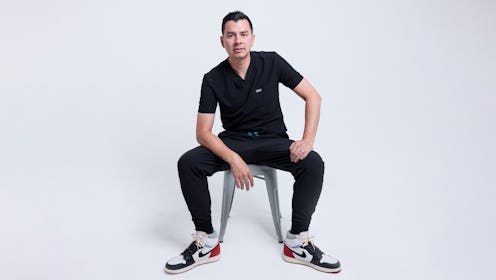(Wellness)
Body Dysmorphia & Plastic Surgery: Delving Into Ethical Standards With Dr. Jerry Chidester
Chidester's ethical approach includes evaluations, communication, and realistic expectations.

The plastic surgery industry is experiencing unprecedented growth, fueled by advancements in technology, shifting societal norms, and an increasing desire for self-improvement. According to the American Society of Plastic Surgeons (ASPS), the demand for cosmetic procedures continues to rise, with over 18 million surgical and minimally invasive cosmetic procedures performed in the United States alone in 2020. This trend reflects a broader cultural acceptance of plastic surgery as a means of enhancing one’s appearance and boosting self-confidence.
However, alongside this growth comes a myriad of ethical dilemmas, particularly concerning patients with body dysmorphia — a mental health condition characterized by obsessive concerns about perceived flaws in physical appearance. While plastic surgery might offer temporary relief to individuals with body dysmorphia, it’s important to carefully weigh this against the possibility of intensifying long-term psychological challenges.
Plastic surgeons face challenges in navigating the delicate balance between fulfilling patients’ desires for physical transformation and safeguarding their psychological well-being. Patients with body dysmorphia may have unrealistic expectations of surgery, viewing it as a solution to deep-seated insecurities rather than addressing underlying psychological issues.
Amidst these ethical challenges, renowned plastic surgeon Dr. Jerry Chidester, known affectionately as Dr. Chiddy, and his team at The Plastics Clinic uphold stringent ethical guidelines to ensure safe and respectful treatment for all patients, particularly those with body dysmorphia or other mental health challenges.
With a medical degree from the University of Utah, residency training at Loma Linda University Medical Center, and a specialty hand-and-upper-extremity fellowship at the University of Southern California in Los Angeles, Chidester brings a wealth of expertise in cosmetic and reconstructive procedures. Specializing in breast augmentation, rhinoplasty, facelifts, and body contouring, Chidester is dedicated to providing personalized care and achieving exceptional results for his patients.
Chidester and his team conduct thorough assessments to evaluate patients’ physical and psychological suitability for surgery. “One of our roles as plastic surgeons and physicians is to never do any harm to our patients,” he says. “We're always assessing what patients’ needs are and what their expectations are for surgery. Sometimes, those expectations don’t align with reality or what is actually possible in my hands or my partner’s hands. So, one thing we always do is put patient safety first. If our goals and what we can achieve do not align with the patient, we may refer them to another practice to get another opinion.”
As for patients who may have a known diagnosis of body dysmorphia, Chidester says that his practice will not operate. “So, ethically speaking, we would never do something that could potentially put that person in more harm, whether it's physical or mental,” says Chidester. “That's been the focus of us as surgeons in general, as well as our practice.”
Body dysmorphia has become even more prevalent in recent years, as the rise of social media has resulted in people comparing themselves with others more and more. Users acknowledge that spending time on social media platforms affects their self-image. In the United States, 22.89% of women and 17.81% of men reported that social media impacts how they feel about their bodies, according to Healthnews.
Because body dysmorphia is so present in modern-day society, it is especially important for physicians and plastic surgeons to have an added layer of care when consulting with patients. Chidester ensures that patients fully understand the risks, benefits, and alternatives to any proposed procedure. Through transparent communication and comprehensive education, patients are empowered to make informed decisions aligned with their goals and expectations.
Chidester stresses the importance of realistic expectations in cosmetic procedures, focusing on enhancing natural beauty and boosting self-confidence. He acknowledges that while surgery can offer aesthetic improvements, it is not a solution for underlying psychological issues such as body dysmorphia.
The ethical practice extends beyond the operating room, with Chidester and his team providing comprehensive postoperative support and follow-up care. By maintaining open lines of communication and addressing patients’ concerns, they facilitate a positive surgical experience and promote long-term well-being.
In the rapidly evolving landscape of plastic surgery, ethical considerations are paramount, especially when patients express concerns potentially related to body dysmorphia. Chidester and The Plastics Clinic exemplify a commitment to upholding their standards, ensuring safe and respectful treatment for all patients. By prioritizing comprehensive evaluation, informed consent, realistic expectations, and ongoing support, Chidester distinguishes himself as a trusted expert dedicated to enhancing both physical appearance and psychological well-being.
This article is for informational purposes only and does not substitute for professional medical advice. If you are seeking medical advice, diagnosis or treatment, please consult a medical professional or healthcare provider.
BDG Media newsroom and editorial staff were not involved in the creation of this content.